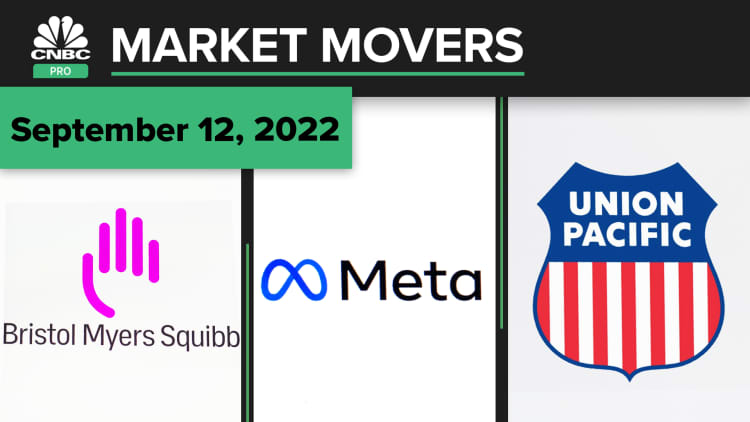
Stocks rose on Monday as a weaker dollar and growing confidence that higher prices have peaked helped Wall Street's relief rally continue ahead of a key inflation report.
The Dow Jones Industrial Average gained 229.63 points, or 0.71%, to end at 32,381.34. The S&P 500 rose 1.06% and closed at 4,110.41. The Nasdaq Composite added 1.27%, wrapping the session at 12,266.41.
Energy was the top sector, but the rally was broad, with Bristol-Myers Squibb gaining 3.14% and tech stalwart Apple adding 3.85%.
The moves extended a rebound for U.S. stocks, as all three major averages snapped a three-week losing streak on Friday.
Stocks have been volatile ahead of the Sept. 20-21 meeting of the Federal Reserve, where the central bank is expected to deliver its third consecutive 0.75 percentage point rate hike in an effort to combat high inflation. Fed officials have reiterated in recent weeks they will keep hiking rates to fight inflation even if it hurts economic growth.
But some recent developments, including a weakening U.S. dollar and military success by Ukraine, appear to be boosting investor sentiment. Many traders are also optimistic about the August consumer price index report, which is scheduled for release on Tuesday morning.
"The combination of the somewhat surprising successes in Ukraine, and the possibility of a very favorable inflation headline that maybe even shows a decline for last month, may put us into a situation where we have a continued rally here," said Phillip Toews, CEO of Toews Asset Management. "And at that point the main threat in the short term and in the medium term will be whether earnings continue to deteriorate."

